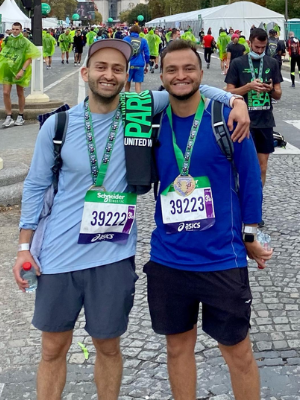Advocacy Successes

Physician Advocacy Successes
Good health policy is made with physicians in the discussion.
MSDC, working with its members, partners, and other organizations, has won major policy victories to help its members practice medicine. Below is a sampling of those victories. Do you want to be a vital part of the next policy victory helping improve the health of the District? Contact us today.
Prior authorization
- MSDC successfully advocated for the passage and funding of prior authorization legislation that makes DC one of the most patient-supported states in the nation when it comes to insurance reforms.
Scope of Practice
- MSDC led a coalition that defeated proposals to allow podiatrists to treat wrist injuries and classify athletic trainers and chiropractors as medical practitioners.
Public Health
- MSDC supported legislation to require coverage for prostate cancer screenings, schools and athletic facilities to create cardiac incident plans, and schools to create plans to help students who suffer from seizures.
Opioid Policy
- MSDC was added to the opioid fund oversight panel by the Council in its legislation authorizing the oversight body
Scope of Practice
- MSDC supported legislation to ban the sale of flavored electronic smoking devices and restrict the sale of electronic smoking devices.
- Working with a coalition, MSDC added funding to the DC budget to support the hiring of more license specialists to help with the delay in processing medical licenses.
Women's Health
- B24-143, to regulate certified midwives, passed the Council with MSDC's support
Health Equity
- Mayor Muriel Bowser signs into law the Electronic Medical Order for Scope of Treatment Registry Amendment Act of 2019. The eMOST Registry Amendment Act permits the creation of an electronic database of advanced directive wishes for District residents that can be tied into the health information exchange.
- Mayor Bowser signs into law the School Sunscreen Safety Temporary Amendment Act of 2019. The bill permits students to bring and apply sunscreen during the 2019-2020 school year.
- MSDC comments on the importance of funding United Medical Center (UMC) and health facilities in Wards 7 and 8 in the mayor's budget.
Scope of Practice
- DC Health publishes draft regulations removing the 3 mandatory CME hours for HIV/AIDS awareness and replaces them with a requirement to fulfill 10% of mandatory CME hours with a topic from a public health priority list. DC Health then waived the requirement for 2020.
- The Strengthening Reproductive Health Protections Act of 2020 is signed into law with MSDC support. The bill prohibits government interference in reproductive decisions between a patient and doctor, and prohibits employers from penalizing physicians for practicing reproductive medicine outside of their work hours.
- The Mayor's Commission on Healthcare Systems Transformation releases its final recommendations. One recommendation is for the District to explore options to make providing health care more affordable, including financial relief for higher malpractice insurance rates.
- The Council removes "telephone" from the list of prohibited types of telemedicine to allow physicians and other providers to be reimbursed for telephone telemedicine appointments after MSDC and health community advocacy.
- MSDC worked with the Council to modify onerous language in the Health Care Reporting Amendment Act that potentially would have penalized physicians from seeking help for substance abuse or addiction issues.
Opioid/Drug Policy
- The Department of Health Care Finance (DHCF) waives prior authorization for key medication assisted treatments (MAT) treating substance use disorder patients in Medicaid.
- The Mayor signed into law The Access to Biosimilars Amendment Act of 2019, a top MSDC priority as it would help prescribers to prescribe more cost-effective drugs for patients.
Behavioral Health
- The Behavioral Health Parity Act of 2017, a major priority for MSDC and DCPA, officially becomes law. The legislation requires all health benefit plans offered by an insurance carrier to meet the federal requirements of the Wellstone/Domenici Mental Health Parity and Addiction Equity Act of 2008.
Health Equity
- The District Council passes B22-1001, The Health Insurance Marketplace Improvement Amendment Act of 2018. The bill prohibits the sale of Short Term, Limited Duration health plans and Association Health Plans (AHPs) in the DC Health Benefits Exchange.
Scope of Practice
- DC joins 28 other states in the Interstate Medical Licensure Compact with B22-177 becoming law. The IMLC is designed to ease physician licensure in multiple states.
Women's Health
- The Maternal Mortality Review Committee is established by law. The Committee is responsible for finding solutions to maternal health crisis in the District. District physicians are an important part of this vital committee.
- B22-106, The Defending Access to Women's Health Care Services Amendment Act, becomes law. The act requires insurers to cover health care services like breast cancer screening and STI screenings without cost-sharing.
Opioid Policy
- Right before the Council adjourned for the session, it passed B21-32, the Specialty Drug Copayment Limitation Act. The bill limits cost shifting by payers for prescription drugs.
Behavioral Health
- B21-0007 passes the Council. The Behavioral Health Coordination of Care Amendment Act of 2016 permitted the disclosing of mental health information between a mental health facility and the health professional caring for the patient.
Women's Health
- MSDC was proud to have worked on B21-20. The law requires payers to cover up to 12 months of prescription contraception, advancing women's health and equality.
Dr. Marchalik is Broadening the Minds of Medical Students through Humanities
 Marchalik with younger brother Josh
Marchalik with younger brother Josh
Dr. Daniel Marchalik has an incredible thirst for knowledge and understanding. This passionate reader grew up in a house full of books and with family members as enamored by a good story as he was. While he has enjoyed classics, today he prefers modern stories of magical realism.
